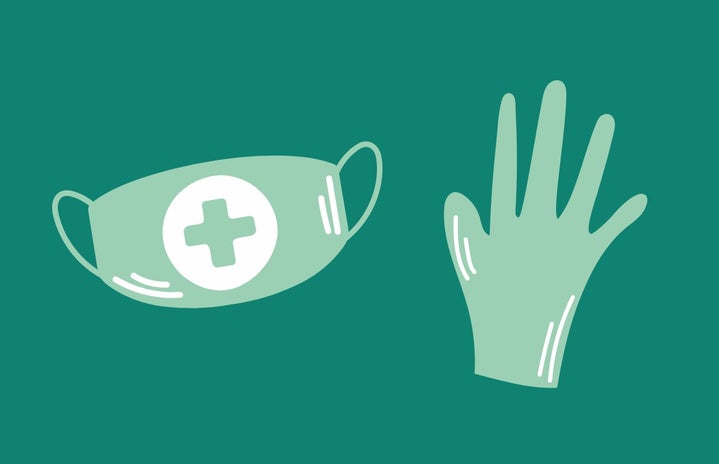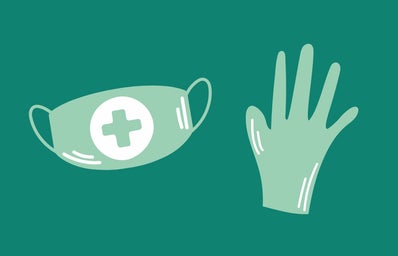Women were more likely than men to have allowed their own health care to lapse during the pandemic, according to a report published last week.
The comprehensive report published by the Kaiser Family Foundation, or KFF, found that, among other things, 38% of women skipped a preventative health care appointment during the pandemic compared to 26% of men.
“I delayed my well woman exam,” Dr. Nicole Plenty, an OB-GYN in Houston, said in a video interview. Plenty has noticed her patients doing the same thing. There are a lot of reasons why she has seen fewer patients, but a lack of national guidance is one large problem she has noticed.
“It has to come from the top. Officials, politicians, physicians,” Plenty said, “We all have to get on the same page.”
She explained that many of her patients didn’t know that coming to their regular visits is safe. And the messaging has been confusing, with some sources directing people to stay home and others telling them to go. Plenty said she was forced to take fewer appointments and delay important surgeries for her patients due to legal restrictions.
“My gyno appointment has been delayed a full year because it was supposed to be in April, but the pandemic hit, and now I can’t do it until May because of college,” said student Valerie Houghton, 19, in a phone interview.
“It was just really annoying because I felt like I wasn’t getting the care I needed,” Houghton said. She felt like she couldn’t get control over her own health and has been left in the dark.
The KFF report found that over 50% of women say that the pandemic affected their mental health. Women were also more likely than men to describe the negative mental health impact as “major.”
“The strain on mental health services has increased,” Plenty said. “It is more than just diagnoses.”
Many of her patients haven’t been affected by a mental disorder, but have had added stress because of the coronavirus pandemic in general. The increase in domestic violence under quarantine has been another problem for her female patients, Plenty noted.
“I’ve seen pregnant women that have been abused,” Plenty said. “We had to ultrasound babies to make sure they’re okay.”
There are many reasons that women may be missing more health care visits than men. Domestic violence, responsibility of child care for quarantined kids, fear of getting sick and lack or loss of health insurance are just a few. Plenty added that most women simply see more doctors than men, so they would be missing more appointments. She even guessed that many women just do not like going to the doctor and found the pandemic to be an easy excuse to not go.
Allison Hewitt, 21, lost her health insurance when her father went through a job change right at the beginning of the pandemic. Between trying to stay safe from the virus and looking for affordable health care professionals, there were several weeks where Hewitt simply missed out on the care she needed.
She remembered thinking “I’m just gonna wait it out,” but the waiting became too long. She was used to seeing a weekly therapist that abruptly became unaffordable.
“It was definitely stressful because I wasn’t talking to anyone,” Hewitt said in a video interview, “I was kind of freaking out. I wanted to see my therapist in person.”
In-person appointments were nearly impossible, and Hewitt eventually started telehealth with her therapist. The KFF report found overwhelmingly positive responses from women who had used a form of telehealth in the past year.

“A lot of people won’t have the self-realization,” said Plenty. She explained that physicians need to inform their patients of the importance of both regular and specialist visits, since many are not just going to come back on their own after being stuck inside for so long.
Hewitt even has difficulty getting a COVID-19 test when her family received new insurance. She opted to go without testing because of the high costs which she says compounded her stress. KFF reported that 7% of women were unable to get a COVID-19 test, which was equal to the amount of men. Younger women though, like Hewitt, were more likely to be unable to get a test than older women.
Dr. Plenty wanted to stress that if people can, they should go see their doctors. She knows many patients are still unsure of whether going to a doctor’s office is safe or not, especially those susceptible to the coronavirus.
“It’s safe. It’s important before it gets to an advanced stage. This is the time to make sure you are healthy,” Plenty said.



